How to Help Your 5th Grade Student Prepare for the North Carolina EOG Math Test

Welcome, concerned parents of 5th-grade students in North Carolina! As your child prepares for the upcoming EOG (End-of-Grade Tests) math assessment, you play a crucial role in their success. Understanding how to support and guide them through this process can make a significant difference in their confidence and performance. This comprehensive guide is designed to equip you with the knowledge and strategies needed to help your child excel on the North Carolina EOG math test. For official information North Carolina Department of Public Instruction website.
The EOG (End-of-Grade Tests) are statewide assessments administered to 5th-grade students in North Carolina. These tests evaluate students’ understanding of key math concepts and skills they have learned throughout the school year. Performing well on the EOG math test is important as it not only reflects your child’s academic progress but also helps educators identify areas for improvement and provide additional support where needed. For additional educational resources,.
In this guide, you can expect detailed insights into the structure of the EOG math test, essential math skills your 5th grader needs to master, effective study strategies, practical tips for test-taking, emotional support methods, practice resources, and a comprehensive plan for test day success. Our aim is to empower you with actionable advice and encouragement to help your child navigate the test with confidence and competence.
We understand the importance of your child’s academic journey, and we are here to support you every step of the way. Let’s dive into the details of preparing your 5th-grade student for success on the North Carolina EOG math test!
Understanding the North Carolina EOG 5th Grade Math Test
Before diving into preparation strategies, it’s essential to understand the structure and content of the North Carolina EOG (End-of-Grade Tests) for 5th-grade math. The test covers various math domains, including operations, geometry, measurement, data, and more. Students are assessed through a set number of questions within a specified time limit, and their performance is scored based on proficiency levels. These results are used by educators to evaluate student learning and guide instructional decisions.
Proficiency levels in the EOG math test indicate the degree to which students have mastered specific math skills. The test is typically administered towards the end of the academic year, offering a comprehensive assessment of students’ mathematical knowledge. Understanding how the results are interpreted and utilized by teachers can provide valuable insights into your child’s academic progress and areas of strength and improvement.
Key Math Skills Your 5th Grader Needs to Master
As parents, you can support your child’s preparation by focusing on key math skills required for success on the EOG test. Here are the essential math domains your 5th grader needs to master:
Operations & Algebraic Thinking
In this domain, students are expected to demonstrate fluency in operations like addition, subtraction, multiplication, and division. They should be able to solve multi-step word problems, identify patterns, and understand algebraic concepts appropriate for their grade level. Encourage your child to practice solving a variety of numerical and word problems to strengthen their problem-solving skills.
Number & Operations in Base Ten
Understanding place value, decimal operations, and rounding are crucial skills in this domain. Your child should be able to perform operations with multi-digit numbers, solve real-world problems involving decimals, and apply place value concepts effectively. Practice activities that reinforce these skills can help build a solid foundation in number sense.
Number & Operations – Fractions
Proficiency in working with fractions, including adding, subtracting, multiplying, and dividing fractions, is essential for success in this domain. Your child should be able to interpret fractions, compare them, and apply fraction concepts to solve problems. Engage your child in activities that involve fraction manipulatives and real-world fraction scenarios to enhance their understanding.
Measurement & Data
Measurement involves understanding units of measurement, conversions, and solving measurement problems. Data interpretation, graph reading, and statistical analysis are key components of this domain. Engage your child in practical measurement tasks and data analysis activities to strengthen their measurement and data skills.
Geometry
Geometry concepts cover shapes, angles, area, perimeter, and spatial reasoning. Your child should be able to identify geometric properties, classify shapes, and solve geometry problems accurately. Encourage hands-on exploration of shapes, measurements, and geometric relationships to deepen their understanding of geometry.
By focusing on these key math skills and providing targeted practice opportunities, you can help your child build a strong foundation in mathematics and prepare effectively for the North Carolina EOG math test.
Building Strong Math Foundations at Home
Supporting your child’s math learning at home is an integral part of their academic success. Here are some strategies to help you build strong math foundations outside the classroom:
Daily Practice Strategies
- Encourage your child to practice math problems daily, focusing on areas where they need improvement.
- Use resources like worksheets, online math platforms, and math games to make practice engaging.
- Set aside dedicated time for math practice each day to establish a routine.
Consistent practice can help reinforce math concepts and boost your child’s confidence in tackling math problems.
Making Math Part of Everyday Activities
Integrate math into daily routines by involving your child in activities like grocery shopping, cooking, and budget planning. For example, ask them to calculate total costs, measure ingredients, or estimate quantities. These real-world applications of math can enhance their practical understanding of mathematical concepts.
Games and Activities that Build Number Sense
Engage your child in math games and activities that promote number sense and critical thinking. Games like “Math Bingo,” “Fraction War,” and “Math Puzzles” can make learning math enjoyable and interactive. Encouraging a playful approach to math can foster a positive attitude towards the subject.
Using Manipulatives and Visual Aids
Utilize math manipulatives like base-ten blocks, fraction tiles, and geometric shapes to help your child visualize abstract math concepts. Visual aids can aid in understanding complex ideas and make learning more concrete and accessible. Encourage hands-on exploration and experimentation with manipulatives to deepen mathematical understanding.
Reading Math Books Together
Explore math-themed books with your child to cultivate their interest in mathematics. Books that present math concepts in a fun and engaging way can spark curiosity and creativity. Discussing math stories, puzzles, and real-life applications of math can enhance your child’s mathematical literacy and problem-solving skills.
Technology Resources that Help
Utilize educational math apps and websites that offer interactive lessons, practice problems, and math games. Platforms like Khan Academy, Prodigy, and Math Playground provide engaging math resources tailored to different grade levels. Embracing technology can supplement traditional learning methods and make math learning more dynamic and accessible.
By incorporating these strategies into your child’s daily routine, you can create a supportive math-learning environment at home and reinforce their math skills effectively.
Effective Study and Practice Strategies
Preparing for the North Carolina EOG math test requires effective study and practice strategies to help your child feel confident and competent. Here are some key approaches to enhance their preparation:
Creating a Realistic Study Schedule
Work with your child to establish a study schedule that balances academic tasks with breaks and leisure time. Allocate specific time slots for math practice, review sessions, and relaxation to maintain a healthy study routine. A well-structured schedule can help your child stay organized and focused on their preparation.
Making Practice Sessions Enjoyable and Engaging
Infuse creativity and variety into math practice sessions to keep your child motivated and engaged. Incorporate interactive activities, puzzles, and challenges that cater to your child’s interests and learning style. Personalizing the practice experience can make learning math enjoyable and effective.
Using Practice Tests Effectively
Introduce practice tests as part of your child’s preparation strategy to simulate the test-taking environment. Encourage your child to complete practice tests under timed conditions to build endurance and familiarity with test formats. Reviewing and analyzing practice test results can help identify areas for improvement and focus on targeted practice.
Reviewing Mistakes Constructively
Guide your child in reviewing and understanding their mistakes in practice tests and assignments. Encourage them to analyze errors, identify patterns, and learn from misconceptions. Emphasize the importance of constructive feedback and growth mindset to turn mistakes into learning opportunities.
Building Stamina for Longer Practice Sessions
Gradually increase the duration of practice sessions to help your child build stamina for sustained focus and concentration. Practice extended problem-solving sessions to mimic the length of the actual test and prepare your child for the mental demands of the assessment. Building endurance can enhance performance and confidence during the EOG math test.
Tracking Progress Over Time
Maintain a record of your child’s progress in math practice and test performance. Track improvements, milestones, and areas of growth to celebrate achievements and identify ongoing challenges. Regular progress monitoring can provide valuable insights into your child’s development and inform future study strategies.
By implementing these study and practice strategies consistently, you can equip your child with the skills and confidence needed to excel on the North Carolina EOG math test.
Test-Taking Strategies and Techniques
Effective test-taking strategies can help your child navigate the EOG math test with confidence and precision. Here are some key techniques to enhance their test-taking experience:
Time Management Strategies
Teach your child time management techniques such as pacing, prioritizing questions, and allocating time wisely during the test. Encourage them to monitor the clock, pace themselves effectively, and allocate sufficient time for each section. Time management skills can prevent rushing and ensure that all questions are addressed within the allotted time.
How to Read Word Problems Carefully
Guide your child in reading word problems attentively and extracting essential information to solve mathematical tasks. Encourage them to identify key terms, underline relevant details, and visualize the problem scenario to facilitate problem-solving. Breaking down word problems into manageable steps can enhance comprehension and accuracy in responses.
Problem-Solving Strategies
Equip your child with diverse problem-solving approaches to tackle math questions effectively. Encourage them to apply strategies like working backwards, drawing diagrams, using logical reasoning, and checking for errors. Familiarize your child with multiple problem-solving methods to adapt to different question types and challenges.
When and How to Skip Difficult Questions
Teach your child the importance of strategic question skipping for time management and overall test performance. Instruct them to mark challenging questions, move on to easier ones, and return to difficult items if time permits. Skipping questions strategically can prevent time wastage and ensure that your child addresses as many questions as possible within the time limit.
Checking Work Effectively
Emphasize the significance of reviewing and checking answers before submitting the test. Encourage your child to double-check calculations, verify solutions, and ensure accuracy in responses. Implementing a systematic review process can help catch errors, refine responses, and improve overall test accuracy.
Handling Different Question Types
Prepare your child for a variety of question types they may encounter on the EOG math test. Practice different question formats such as multiple-choice, short response, and extended response questions to familiarize your child with diverse assessment styles. Exposure to various question types can boost your child’s confidence and competence in tackling any challenge.
By equipping your child with effective test-taking strategies and techniques, you can enhance their performance and confidence during the North Carolina EOG math test.
Supporting Your Child Emotionally
Emotional support plays a vital role in your child’s test preparation journey. Here are some strategies to help you nurture your child’s emotional well-being during the EOG math test preparation:
Recognizing and Managing Test Anxiety
Be attentive to signs of test anxiety in your child and offer strategies to manage stress and anxiety effectively. Encourage relaxation techniques, positive affirmations, and deep breathing exercises to alleviate test-related tension. Openly discuss any concerns or fears your child may have and provide reassurance and support throughout the preparation process.
Building Confidence Through Small Wins
Celebrate your child’s progress and achievements, no matter how small, to boost their confidence and motivation. Acknowledge their efforts, highlight their strengths, and encourage a growth mindset that values progress over perfection. Recognizing and celebrating small wins can empower your child and instill a positive attitude towards learning and challenges.
Creating a Positive Learning Environment at Home
Foster a supportive and encouraging learning environment at home that promotes academic growth and emotional well-being. Establish clear communication channels, encourage open dialogue, and cultivate a sense of safety and comfort for your child. By creating a positive atmosphere, you can enhance your child’s learning experience and emotional resilience.
Dealing with Setbacks Constructively
Guide your child in handling setbacks and disappointments constructively by reframing challenges as opportunities for growth. Encourage resilience, perseverance, and a positive outlook when faced with difficulties. Help your child develop problem-solving skills, coping strategies, and a resilient mindset to navigate setbacks effectively.
Celebrating Progress, Not Just Perfection
Shift the focus from perfection to progress by celebrating your child’s growth, improvement, and effort throughout the test preparation process. Emphasize the value of continuous learning, resilience, and persistence in overcoming challenges. By celebrating progress milestones, you reinforce a growth mindset and foster a sense of achievement in your child.
Encouragement Strategies that Work
Provide consistent encouragement, support, and positive reinforcement to motivate your child during their test preparation. Offer words of encouragement, affirmations of belief in their abilities, and constructive feedback to inspire confidence and determination. Your encouragement can serve as a powerful motivator and catalyst for your child’s success.
By nurturing your child’s emotional well-being and providing a supportive environment, you can empower them to approach the North Carolina EOG math test with confidence, resilience, and a positive mindset.
Practice Resources and Tools
Access to high-quality practice resources and tools can enhance your child’s preparation for the North Carolina EOG math test. Here are some valuable resources to support your child’s practice:
Review of Helpful Practice Materials
Explore a range of practice materials such as workbooks, practice tests, and online resources specifically designed for EOG math test preparation. Select materials that align with the test format, content, and proficiency levels to ensure targeted practice and reinforcement of key math skills.
Natural, Helpful Mention of the Comprehensive Practice Book
For comprehensive practice tailored to the North Carolina EOG 5th Grade Math Test, consider using the “5 North Carolina EOG Grade 5 Math Practice Tests” book. This resource provides structured practice, detailed explanations, and realistic test simulations to prepare your child effectively for the exam. Incorporating targeted practice materials like this book can enhance your child’s readiness and confidence on test day.
Online Resources and Apps
Explore educational websites and math apps that offer interactive practice, tutorials, and personalized learning experiences for students. Platforms like CoolMath, Mathway, and IXL Math provide engaging math resources catered to different learning styles and skill levels. Leveraging online resources can supplement traditional study methods and offer diverse practice opportunities for your child.
How to Choose Quality Practice Materials
When selecting practice materials, prioritize resources that align with the North Carolina EOG math test standards and objectives. Look for materials that offer a mix of question types, detailed explanations, and skill-building activities to enhance your child’s understanding and proficiency. Choosing quality practice materials can optimize your child’s preparation and ensure effective skill development.
Creating Your Own Practice Problems
Engage your child in creating personalized practice problems based on their strengths and areas for improvement
Our Best Seller Books
Frequently Asked Questions
How do you multiply and divide decimals?
To help your 5th grader prepare for the North Carolina EOG math test, understanding how to multiply and divide decimals is key. When multiplying decimals, align the numbers by their rightmost digits as if ignoring the decimal points, multiply as usual, then place the decimal in the answer so that the total number of decimal places equals the sum of the decimal places in the factors. For division, move the decimal point in the divisor to the rightmost end, do the same shift in the dividend, and then divide as you would with whole numbers. This process is essential, so practicing these steps will boost their confidence and accuracy on the test.
How do you add and subtract mixed fractions?
Adding and subtracting mixed fractions can seem challenging, but with a clear method, it’s quite manageable—skills that are especially useful as your child prepares for the North Carolina EOG math test. First, make sure all fractions involved have the same denominator (the bottom number). You may need to find a common denominator by identifying the least common multiple. Once the denominators are the same, add or subtract the numerators (the top numbers) as you would with whole numbers. The last step is to simplify the fraction if possible. For more detailed guidance, you might find this step-by-step tutorial on how to add and subtract fractions helpful.
What is the relationship between chord and arc?
In the context of preparing your 5th grader for the North Carolina EOG math test, understanding the relationship between a chord and an arc in a circle can be useful, especially since geometry is a key component of the curriculum. A chord is a straight line segment whose endpoints both lie on the circle. The arc, on the other hand, is the curve between those two endpoints along the circle. The important thing to note is that the length of the chord directly influences the size of the arc it subtends (or creates); a longer chord results in a larger arc. Encouraging your child to visualize this relationship can enhance their geometric intuition, making topics like these more approachable during their test preparation.
Related to This Article
More math articles
- The Ultimate 6th Grade RISE Math Course (+FREE Worksheets)
- The Ultimate 7th Grade NHSAS Math Course (+FREE Worksheets)
- Get Fit with Math: How to Calculate Unit Prices and Total Price
- How many questions are on the SAT Test?
- How to Find The Slope of Roots: Derivative of Radicals
- 6th Grade PACE Math Worksheets: FREE & Printable
- How to Evaluate Decimal Distances on the Map
- How to define Polar Coordinates
- How to Solve Irrational Functions?
- How to Factor by GCF?
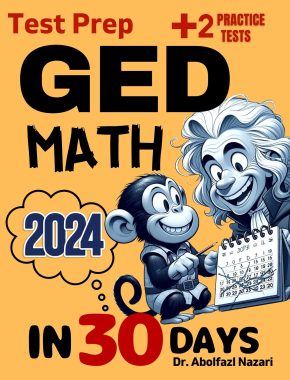
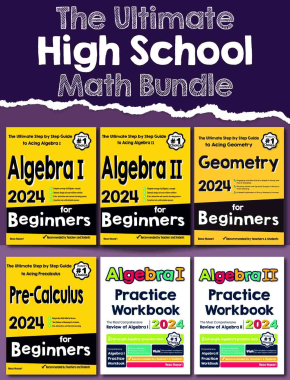
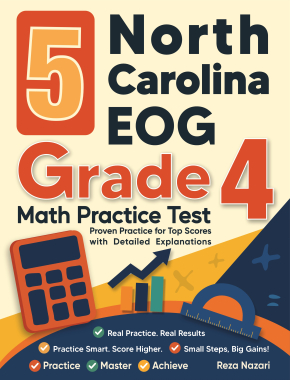
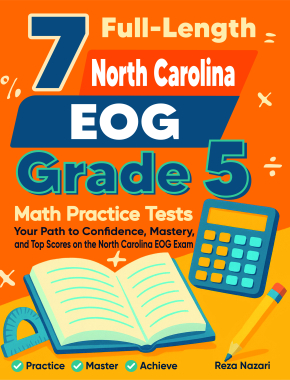
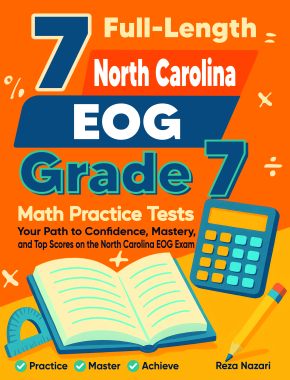
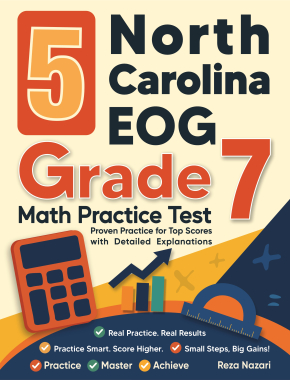
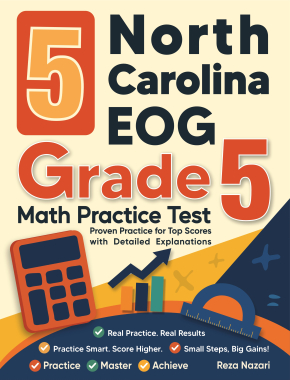
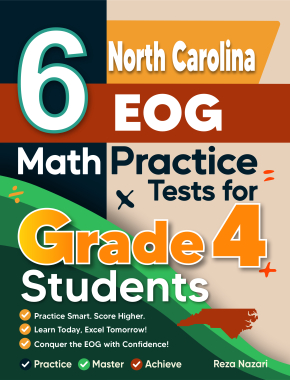
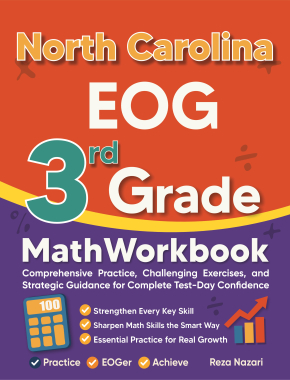
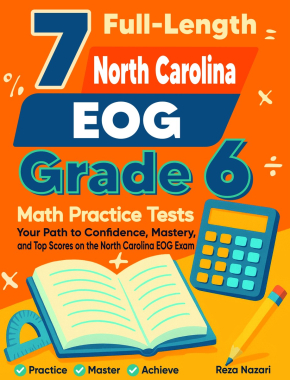
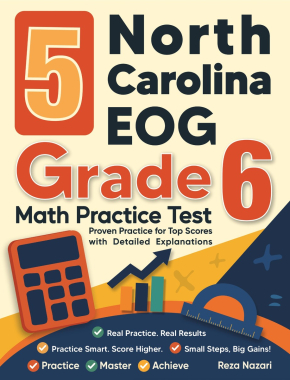
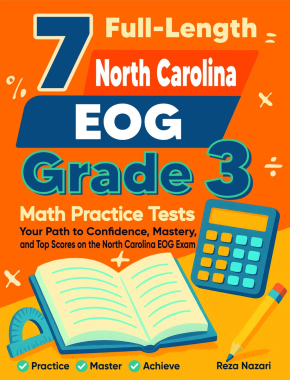
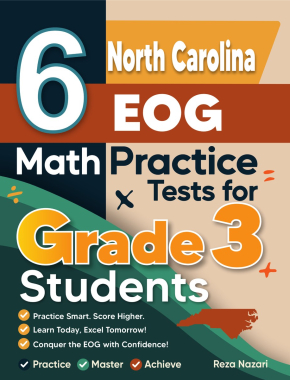
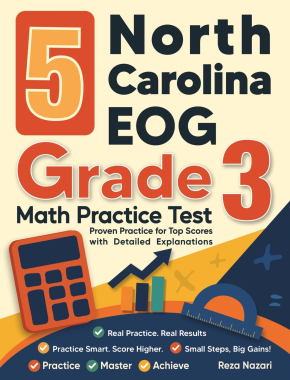
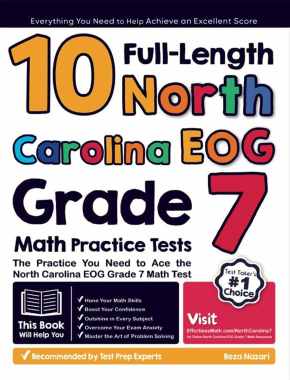
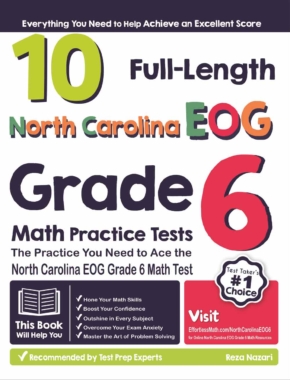
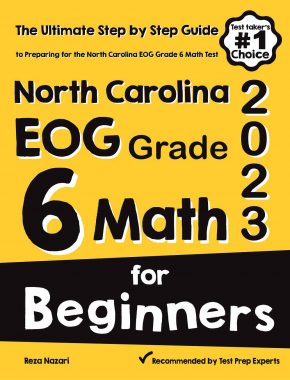









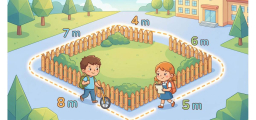

What people say about "How to Help Your 5th Grade Student Prepare for the North Carolina EOG Math Test - Effortless Math: We Help Students Learn to LOVE Mathematics"?
No one replied yet.